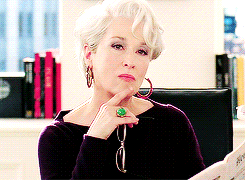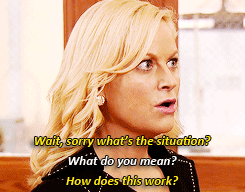When she's not writing, Tazeana spends her day YouTubing cat…
Nobody likes being criticized. Even a small commentary on your performance or behavior at work can feel like a personal attack. Sadly, most of us weren’t taught in school how to gracefully handle criticism. There’s no subject like Criticism 101, and we’re usually just left to learn from experience.
What if your boss calls you to his/her office one day and you’re not groomed with a healthy, logical way to respond? Likely case scenario: you’d end up saying things you’ll regret.
Props to those who can hold their own in the face of verbal whipping, but to those who cave in easily to spur-of-the-moment emotions, here are some ways you can stay cool, rational, and composed.

1. Stop your first impulsive reaction
For many of us, the first impulsive reaction is to get defensive, or worse, offensive. Switching into attack mode won’t achieve anything but to make you look unreceptive and belligerent.
Given the critique unfolding, these qualities won’t exactly be in your favor. Whether you agree with the premise or not, keeping your cool and showing readiness to listen is the better way to take it.

2. Remember the importance of getting feedback
Receiving criticism can make you feel like everyone is against you. Here’s the thing: criticisms can be tricky. It helps to remember that people express their opinions to help you improve and stick around.
You know when your friends hold an intervention to stop a bad habit and they say it’s all out of love? It’s almost like that. So when you think the entire company hates you and your contributions, think again.

3. Stop, breathe, and understand
There’s a good reason your attention is being called. Make it your goal to understand that reason and look at the situation from that perspective. Your boss has better insight when it comes to your tasks and your role in the company, so do accept the points for improvement as just that–feedback on how to be better at your job and not a personal attack.
Once you got it, don’t say “I know.” Because if it’s taken you this long to realize your shortcomings, chances are, you don’t know. And hearing this will only put your boss on the defensive and things can take an ugly turn. Instead, say “I see.” Doesn’t that sound a lot better?

4. Never antagonize, but never apologize
Agree to improve or change your ways where they’re needed, but don’t say sorry. Unless the situation utterly calls for an apology (like if you’ve disrespected or hurt someone’s feelings), saying “sorry” is unnecessary and will only make you sound indecisive. Instead, go with a stronger, more confident response, like “Yes, I’ll keep that in mind,” or “Yes, I’ll do that.”

5. In the end, be grateful
Even if you think you’re entitled to a feeling of bitterness and disappointment, let another feeling prevail instead: gratitude. In general, if a person tells you to do better, it means they’re investing in you, and it’s because they think you’re valuable.
So feel grateful that your boss takes the time to sit you down and discuss your points of improvement–it means your boss wants you to grow with the company. See? Isn’t that a healthier way to look at it?

Criticism is an inevitable part of life. You’ll get it at some point, whether at work or at home. In this difficult time, shake your critic’s hand and handle it like the winner that you are.
Featured Image from The Devil Wears Prada courtesy of Twentieth Century Fox Film Corporation
What's Your Reaction?
When she's not writing, Tazeana spends her day YouTubing cat and dog videos and daydreaming about Jollibee fried chicken.


